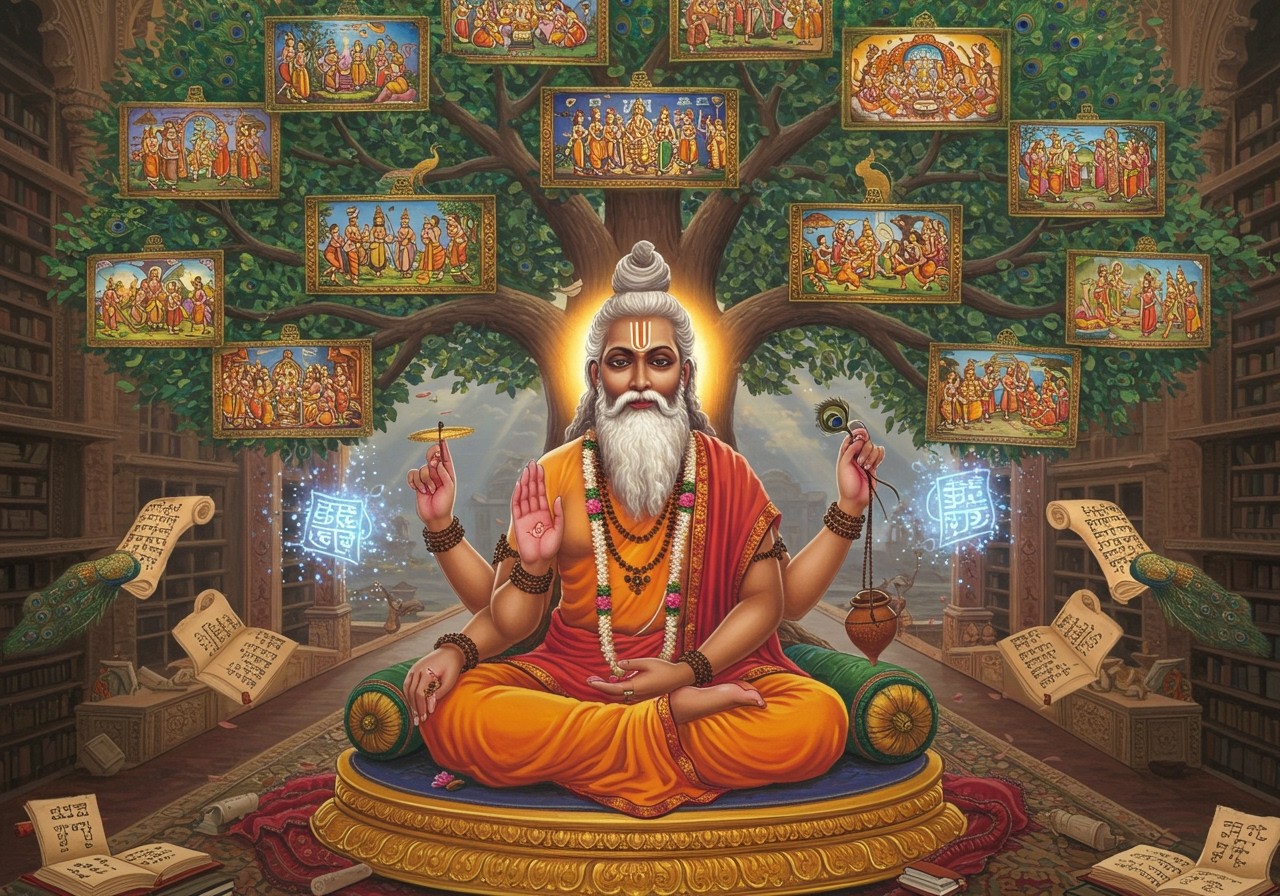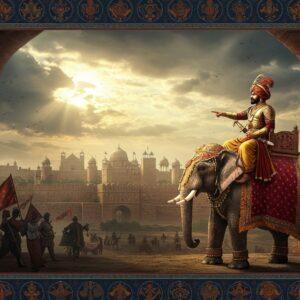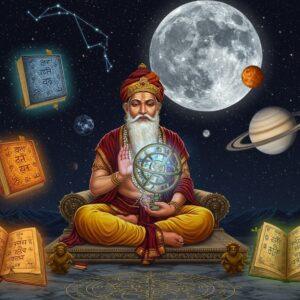Veda Vyasa: The Literary Luminary of Hindu Scriptures

Veda Vyasa, also known as Krishna Dvaipayana, holds a position of immense reverence in Hindu tradition. He is a pivotal figure in Hindu literature, shaping the spiritual and philosophical landscape of the religion. His influence extends far beyond a single work, touching upon the core of Hindu beliefs and practices. This exploration delves into Vyasa’s significant impact on Hindu literature, defining key terms like ‘Veda Vyasa’, ‘Mahabharata’, and ‘Bhagavad Gita’, while highlighting his crucial role in preserving ancient Hindu scriptures.
Vyasa’s Profound Literary Contributions
Veda Vyasa’s literary contributions are extensive and deeply impactful. He is credited with compiling the Vedas, the foundational sacred texts of Hinduism, ensuring their preservation and organization. This monumental task involved categorizing the hymns and verses, a contribution of immeasurable value to Hindu religious practice. He is also credited with authoring the Puranas, which offer profound insights into Hindu cosmology, mythology, and ancient history, providing a rich tapestry of narratives and teachings. The Mahabharata, his most renowned work, is a complex literary masterpiece, exploring intricate philosophical discourses and timeless moral dilemmas that continue to captivate and inspire readers across generations.
You can discover resources related to the Mahabharata and other scriptures at poojn.in.
The Mahabharata’s Enduring Influence
The Mahabharata’s influence on Hindu literature, thought, and culture is unparalleled. Its profound exploration of duty (dharma), righteousness, and the intricacies of the human condition has resonated with countless individuals throughout history. It provides the backdrop for the Bhagavad Gita, a cornerstone of Hindu philosophy. The epic offers a window into ancient Indian society, illuminating its values, social structures, and the challenges faced by individuals and communities. The Mahabharata continues to shape Indian art, theater, and dance, influencing contemporary Indian literature and philosophical thought.
Delve deeper into the Ramayana’s influence on Hindu spirituality on Poojn.in.
The Bhagavad Gita: A Philosophical and Spiritual Touchstone
The Bhagavad Gita, a pivotal section within the Mahabharata, is revered for its profound philosophical and spiritual teachings. The timeless dialogue between Lord Krishna and Arjuna explores fundamental concepts such as dharma (duty), yoga (spiritual practice), and moksha (liberation). This profound conversation delves into the nature of reality, the purpose of life, and the path to spiritual fulfillment. The Gita emphasizes the importance of selfless action and devotion, offering practical guidance for navigating the complexities of life and achieving a state of balance and harmony. Its interpretations by scholars and spiritual leaders throughout history highlight its enduring relevance and universal appeal across cultures and spiritual traditions. Explore Bhagavad Gita sets at poojn.in
Vyasa’s Literary Expanse Beyond the Mahabharata
Veda Vyasa’s literary influence extends beyond the Mahabharata. He is attributed with the authorship of the Brahma Sutras, foundational texts for Vedanta philosophy. These concise and profound aphorisms delve into the nature of reality and the relationship between the individual soul and the ultimate reality. The eighteen Mahapuranas, also attributed to Vyasa, offer a rich exploration of Hindu culture, rituals, and cosmology. These texts provide detailed narratives on the creation of the universe, the lives of deities and sages, and the principles of Hindu dharma. His works played a significant role in the Bhakti movement, nurturing and inspiring devotional traditions across India.
For those seeking spiritual growth through technology, explore Poojn.in’s tech solutions.
Veda Vyasa’s Enduring Legacy
Veda Vyasa’s legacy in Hindu literature and spirituality remains profound and enduring. Guru Purnima, a sacred festival, is celebrated annually to honor him as the Adi Guru, the primordial teacher. This celebration underscores his revered status and the deep gratitude felt for his invaluable contributions to Hindu tradition. His works continue to inspire generations, serving as timeless sources of wisdom and spiritual guidance. Ongoing research and interpretations of his texts demonstrate their continued relevance in both academic and spiritual circles, ensuring that his teachings continue to illuminate the path for seekers of knowledge and spiritual understanding. His works have profoundly shaped Hindu identity and played a vital role in preserving its rich cultural heritage.
Honor Veda Vyasa with authentic puja items from poojn.in. Explore our collection, which may include clay diyas, Radha-Krishna bigraha, Shiva lingam, and more.
Exploring Veda Vyasa’s Influence
How did Veda Vyasa impact Hindu literature? Veda Vyasa’s impact is immense. His authorship of the Mahabharata, compilation of the Vedas, and creation of the Puranas profoundly shaped Hindu literature, philosophy, and religious practices. These works offer profound insights into ancient Indian society, ethics, spirituality, and cosmology.
Why is Veda Vyasa important in Hindu tradition? Veda Vyasa is revered as a central figure in Hindu tradition due to his invaluable contributions to Hindu scriptures. His works, particularly the Mahabharata and the Vedas, are fundamental to Hindu teachings, rituals, and spiritual practices. They provide a framework for understanding dharma, karma, and the path to moksha.
How is Veda Vyasa’s work relevant today? Veda Vyasa’s writings, especially the Mahabharata and Bhagavad Gita, continue to be incredibly relevant today. They provide guidance on ethical dilemmas, offer insights into spiritual practices, and inspire discussions on philosophy and the nature of reality. The lessons within these texts remain timeless and applicable to contemporary challenges and life’s complexities.


